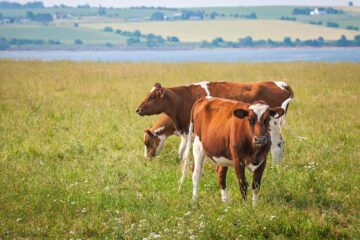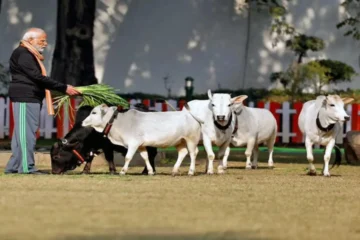Published in: March 2018
In recent times, intensive poultry farming has become the norm, focusing solely on high-output chicken production. The image of poultry farms often brings to mind enclosed sheds with thousands of broiler chickens, fed processed food, antibiotics, and kept warm by artificial heat sources. Such farms require significant investment, but broiler chickens lack the flavor and nutrition of traditional country chickens.
Natural Farming Approach
Natural farming extends beyond crop cultivation to include livestock. Ideally, raising poultry should reduce costs and provide healthy, nutritious food without side effects. This approach benefits farmers by creating a natural, self-sustaining system while providing toxin-free poultry meat. However, understanding nature’s cycles—such as the food chain and water cycle—is essential.
Food Chain: Observing the natural food chain reveals that every organism relies on another for sustenance, either from plants or other animals.
Water Cycle: The water cycle supports life on Earth. During the rainy season, insects, birds, and unseen microorganisms flourish in moist soil, which, in turn, attracts larger organisms. This balance boosts plant growth and enhances food production. Thus, water supports the foundation of life, enabling every organism to thrive.
Natural Poultry Farming
For a zero-cost poultry farm, only water is needed. To set up, enclose one acre of land with a 12-foot high fence made of woven coconut leaves. Cover the ground with farm waste, leaves, and compost to a depth of about 9 inches. Install sprinklers around the farm and water the land thrice weekly at night to maintain soil moisture.
After two weeks, introduce 200 native chickens into this area. The moist soil will foster microorganisms and gradually decompose the organic material, creating an environment rich with worms, insects, and small plants—the natural food for chickens. Additionally, chicken waste will fertilize the soil.
By establishing a sustainable ecosystem, farmers can generate a healthy income with minimal expense. Sprinkling water at night is similar to creating artificial rainfall, encouraging the life cycle to continue. After three months, selling 50 chickens monthly can yield a stable income of 10,000 rupees.
Avoiding Excessive Antibiotics
Antibiotics are often used in conventional poultry farming to combat diseases and promote growth. This practice leads to antibiotic-resistant bacteria, which also impact humans who consume such meat. Raising chickens naturally avoids this issue.
Health Benefits of Country Chickens
In traditional households, country chickens are valued for their medicinal benefits. They help alleviate colds and coughs, with pepper-infused chicken broth acting as a family remedy. Additionally, country chicken meat strengthens muscles, provides nerve support, and has a place in nutritional recommendations for respiratory health.
Herbal Remedies for Poultry Diseases
- White Diarrhea
- Ingredients: Cumin (10g), Phyllanthus (50g), Pepper (5g), Onion (5 cloves), Turmeric powder (5g), Garlic (5 cloves).
- Preparation: Grind onion and garlic, crush cumin and pepper, mix with the other ingredients, and add to feed.
- Diarrhea
- Ingredients: Cumin (10g), Poppy seeds (5g), Pepper (5g), Fenugreek (5g), Turmeric powder (5g), Asafoetida (5g).
- Preparation: Dry roast and crush the ingredients, then mix with feed.
- Pox
- Ingredients: Cumin (20g), Basil leaves (50g), Neem leaves (50g), Alum (5g), Turmeric powder (10g), Garlic (10 cloves).
- Treatment: Mix ingredients, add 100 ml of sesame oil and neem oil each, and apply externally to affected areas.
Low-Cost, Sustainable Income
Farmers can continually add organic matter to the soil by spreading dried leaves and plant waste, requiring minimal expense beyond fencing and sprinklers. This natural approach to poultry farming is chemical-free and uses only water as an investment. Monitoring the chicken population is crucial to ensure sufficient food availability.
Conclusion
Just as natural farming is feasible, so too is zero-cost poultry farming. Life exists to benefit from nature’s resources without causing harm. By embracing this approach with social awareness and a sustainable mindset, farmers can enhance their incomes and contribute to a flourishing society.
A. Ilamaran, V. Ranganathan, P. Senthilkumar, K. Kannan, Veterinary College, Orathanadu – 614 625.










